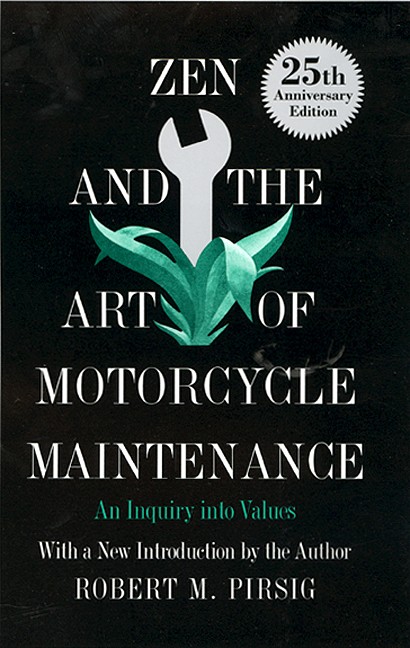
Thursday, January 29, 2009
Wait, this feels familiar
So here it is, exactly 11:08 pm and the amount of homework I have been putting off for two days has just now become fully apparent. Hmm, it must be because the past possesses the present. It seems as though my habits of procrastination will never change. Hopefully my other teachers will accept the excuse that "my habits are mythologically determined and any attempt to change them would be futile." I'll have to talk to Dr. Sexson about vouching for me on that one.
Anyway, the procrastination of my current work has been mainly due to the book Zen and the Art of Motorcycle Maintainance by Robert Pirsig, which I just finished about an hour ago. As I read the afterword to this extremely insightful novel, I noticed the first paragraph related almost perfectly to the theme Dr. Sexson has been stressing all semester. I found it to be an interesting perspective on why, proir to any external knowledge, we as humans all seem to be circumstantially bounded.
"This book has a lot to say about Ancient Greek perspectives and their meaning, but there is one perspective it misses. That is their view of time. They saw the future as something that came upon them from behind their backs with the past receding away before their eyes. When you think about it, that's a more accurate metaphor than our present one. Who really can face the future? All you can do is project from the past, even when the past shows that such projections are often wrong. And who really can forget the past? What else is there to know?"
Anyway, the procrastination of my current work has been mainly due to the book Zen and the Art of Motorcycle Maintainance by Robert Pirsig, which I just finished about an hour ago. As I read the afterword to this extremely insightful novel, I noticed the first paragraph related almost perfectly to the theme Dr. Sexson has been stressing all semester. I found it to be an interesting perspective on why, proir to any external knowledge, we as humans all seem to be circumstantially bounded.
"This book has a lot to say about Ancient Greek perspectives and their meaning, but there is one perspective it misses. That is their view of time. They saw the future as something that came upon them from behind their backs with the past receding away before their eyes. When you think about it, that's a more accurate metaphor than our present one. Who really can face the future? All you can do is project from the past, even when the past shows that such projections are often wrong. And who really can forget the past? What else is there to know?"
Friday, January 23, 2009
In illo tempore?
Ok, so far we have "all that is past possesses our present." Such a statement seems like a very oversimplified way explaining the patterns which present themselves in everyday life. I mean what about free will and all of that? Aren't we supposed to be learning from the past, and through that learning avoid the mistakes which plagued our predecessors? One would think. However, upon a closer consideration of the phrase, the recurrent patterns of the past seem to be as prevalent today as they always have been and probably will continue to be. So why is it that trends thousands of years old can remain relevant today, even when their flaws seem to be so obvious? Are these patterns inherent in human nature, or are we just following the habits of the past for sheer convenience?
At some point, "in illo tempore," humans didn't have a past to follow, something had to independently invent the system which we are apparently still using today. So if humans absolutely follow the laws of the past, who invented the laws?
Subscribe to:
Comments (Atom)